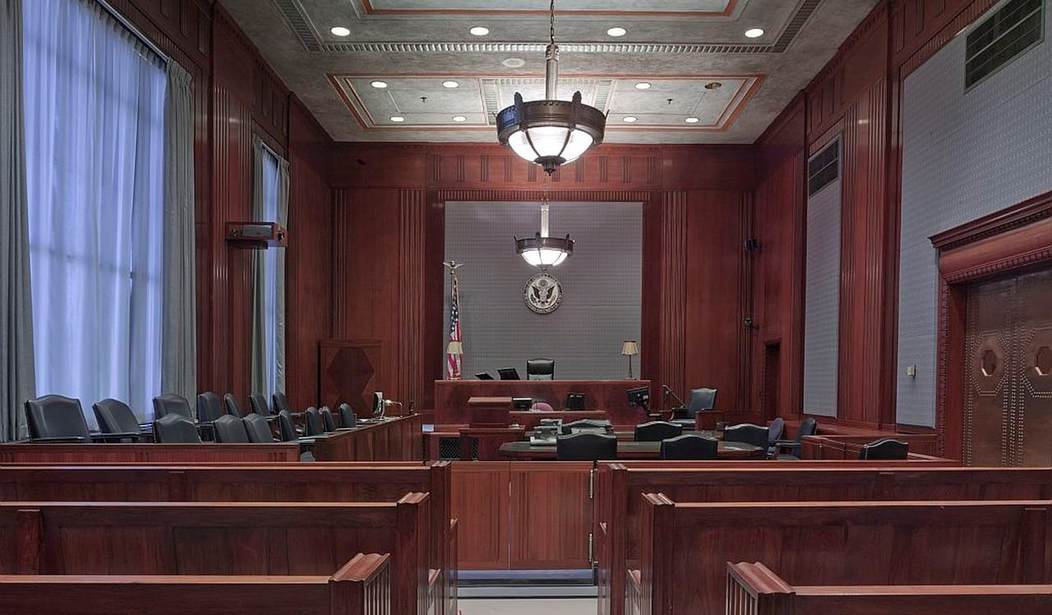The gun control group Brady is crowing over a decision by a California Superior Court judge to allow a lawsuit against Smith & Wesson and a California gun store to proceed, despite arguments from the firearms manufacturer that the Protection of Lawful Commerce in Arms Act should preclude the litigation from moving forward.
The civil suit was brought by family members of victims of the shooting at the Chabad of Poway synagogue in Poway, California in 2019, but the legal wing of Brady is taking a leading role in the litigation; part of the group’s efforts to use the courts to hold gun makers responsible for the acts of criminals.
You can read the judge’s decision for yourself here, but there are a couple of things worth pointing out.
First, Brady alleges that Smith & Wesson “knowingly violated” federal law regarding sales of machine guns to the general public, even though the gun that was used by the attacker was a semi-automatic firearm. Brady’s making the claim that Smith & Wesson knowingly manufactured a gun that could be “readily converted” to fully-automatic fire in violation of the National Firearms Act (the gun used in the Poway shooting wasn’t modified to shoot full-auto, but that’s of no importance to Brady’s argument). If that legal argument were to hold up in court, then the Biden administration and a weaponized ATF would surely declare that all AR-15s and other semi-automatic rifles are also “readily converted” and must be registered under the NFA. Think that’s crazy? David Chipman, the gun control activist who Biden wants to put in charge of the ATF, has already said that in his opinion AR-15s should fall under the NFA, and Brady’s now trying to make the same case to the judge.
Thankfully, the judge rejected Brady’s argument, declaring that “the product liability claim is barred by the PLCAA” and dismissing that claim from the lawsuit. **UPDATE** The judge is still allowing Brady to make roughly the same argument conflating semi-automatic rifles with machine guns. The gun control group can’t make their arguments based on claims of product liability, but the judge determined that Brady can argue that Smith & Wesson was negligent with its design of the rifle in question by producing a rifle “that could be easily modified, including to become an assault weapon under California law, and to fire automatically, effectively prohibited to sell to the general public under federal law (unless the NFA’s requirements were followed”.
The judge also decided that Brady’s second argument did fall outside the scope of the PLCAA; that Smith & Wesson’s marketing team were “targeting youth with advertisements over social media and through video game-like commercials despite the known risks that young people in that demographic are highly susceptible to that type of advertising and have disproportionately perpetrated mass shootings using similar firearms,” and that the company’s advertising violated California’s law forbidding “deceptive, untrue, or misleading advertising.”
To be clear, the judge didn’t declare that Brady’s arguments are valid, but that the case can continue forward based on their claims about the company’s advertising practices. It’s still the wrong decision in my mind, because Brady’s argument, if successful, would basically prevent every company within the firearms industry from marketing to those under the age of 35. Younger Americans may disproportionately account for mass shootings and violent crime overall, but it’s still an incredibly small number of young Americans who engage in those illegal and violent acts. The vast majority of gun owners under the age of 35 are law-abiding, just like the vast majority of gun owners who are older. It’s a ridiculous argument, and the judge should have dismissed that claim as well.
As we discussed with the National Shooting Sports Foundation’s Mark Oliva on Wednesday’s Bearing Arms Cam & Co, the gun control lobby’s decades-long strategy of using litigation to try to bankrupt the industry isn’t necessarily predicated on getting a win and a huge verdict. A “death by a thousand cuts” works just as well, and even if Smith & Wesson ultimately prevails in this lawsuit, the company will still be on the hook for hundreds of billable hours by attorneys working on their defense. The longer these trials drag out, the better it is for anti-gun activists, even if they ultimately lose their case.
In the meantime, Brady will be seeking all kinds of internal documents from Smith & Wesson as part of the discovery process, hoping to find anything that they can use to insinuate that the company was marketing guns to mass shooters.
I suspect Smith & Wesson will appeal this decision, but given the fact that the lawsuit was filed in state court and not the federal judiciary, I’m not feeling great about California appeals court judges or the state Supreme Court throwing out Brady’s lawsuit. I think the company will eventually win the case, but that doesn’t mean their victory will come cheap or easy.









Join the conversation as a VIP Member